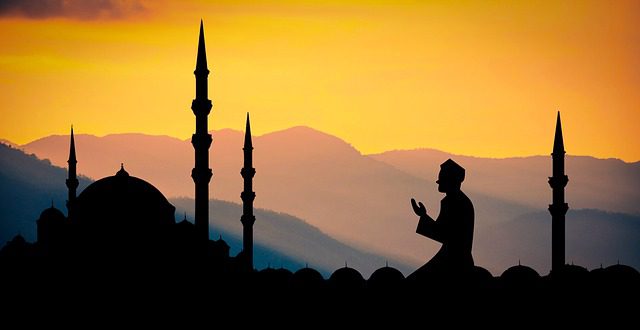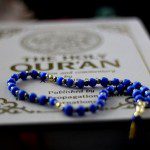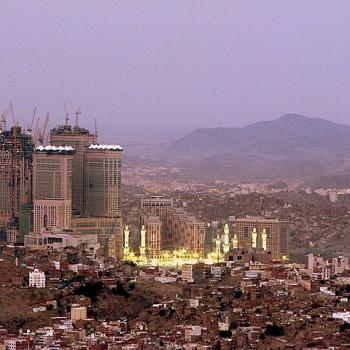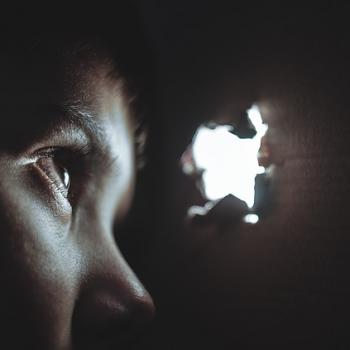 This is Day One of the 2018 Ramadan #30Days30Writers series. Thank you to Tyson Amir for pinch hitting for day one, when the original contributor slotted for this day had to cancel.
This is Day One of the 2018 Ramadan #30Days30Writers series. Thank you to Tyson Amir for pinch hitting for day one, when the original contributor slotted for this day had to cancel.
The moments experienced in our lives present us with a tremendous opportunity to do for ourselves, our people and our world. One’s understanding and belief colors the perceptions of a person’s life experiences. As the practitioners of Islam enter a “sacred” time, Ramadan, the ninth month of the Islamic calendar, they are encouraged to perceive, reconnect, remember and engage with their faith, themselves and their world in a more purposeful/intentioned way.
Ramadan is sometimes termed “the month of fasting,” but the practitioner is called to more than just that, and as tradition states, some will only get hunger and thirst from their engagement with the month. If it is not just about “the fast,” then what else does it concern? In the Islamic context, Ramadan symbolizes the beginning of the Islamic movement.
Tradition states that the Prophet of Islam received his first revelation of the Quran, which became the foundation of the sacred text of Islam and the philosophical engine to the Islamic movement, in the month of Ramadan. In the cosmology of Islam, all the revealed works of The One began in the month of Ramadan. With such an intense focus on “the message” and the significance of the message, the practitioner is called back to that message.
In light of that, many adherents try to read and recite the entire Quran during the month. However, the Quran is not a “book” in the popular sense of the word today. It is not something to be confined to physical or digital covers. It is not something to be understood only on a cognitive level and then stored in places of the brain via rote memory.
To “read” the Quran is to recite it (i.e. give it life in one’s mind, heart, soul and body to be truly read). The proof of this concept is in a statement attributed to Aisha, one of the wives of the Prophet of Islam. When asked about who/how the Prophet Muhammad (saw) was, her response was very telling. She described him as, “the book walking.”
He was so much in tune with the message that he was the living embodiment of the message.
In many ways Islam can be considered a comprehensive personal/social experience that covers numerous aspects of human interaction. One of the more prominent themes that drives the tradition is the push for peace, fairness, equality, freedom and social justice. Practitioners are commanded to work to establish these things in their lives, homes, communities and societies in which they live.
This was the very example of the initial Islamic movement under the leadership of the Prophet of Islam. The faith provided a platform for practitioners to cultivate themselves inwardly but to use that inward growth to inform their analysis of the world and work to create change in that world where it was needed. The first community of adherents had a sharp social and political analysis of things around them, took stands and eventually took action to change much of what they felt was wrong.
This work culminated in a revolutionary overthrow of the pre-existing political/ cultural/social/economic order in the Arabian peninsula, which was supplanted by the new Islamic social order. This new order hoped to bring peace and social justice to the people under its authority.
Revolution is not always the goal because not every time and place requires revolutionary change. Justice, fairness, equality, freedom and peace can be considered goals at all times. If those things are being denied to people, then work needs to be done to address that. This is some of what the adherents of the tradition are tasked with throughout time and space, as well as “tending to their souls.” Both are interconnected because how can one have a healthy soul if they aren’t active in helping to create a healthy society?
This brings us back to the significance of Ramadan. It is the month of “the message.” The message is a text placed in a layered context composed of the of the ideas and interpretations by the practitioners of the faith, the time in which the people live, and the historic and contemporary conditions in which the people live with and in. This message of faith comes to life in Ramadan and moves through and around people
We have an understanding of the social justice principles of the text. But, what is our context? What is now termed “The United States of America” is arguably the most barbaric empire in human history. It became so by attempting to annihilate the indigenous peoples of the western hemisphere and forcibly enslaving those remaining and my ancestors from various parts of the African continent for economic purposes.
The power, property and wealth amassed via this new colonization has made them the most dominant force on the planet today. They attempt to secure their power by any means necessary and their grasp encompasses the world.
My local context is being a descendant of proud men and women who would not allow this empire to conquer them. They resisted with everything they had, and faith was one of those weapons. My great-great-great grandfather was forcibly enslaved in the state of Georgia and used his faith to fuel his fight for freedom and liberation for his people. The same is true for the likes of Noble Drew Ali, Elijah Muhammad, Sis. Clara Muhammad, Muhammad Ali and Malcolm, whose example inspired a young man by the name of Huey P. Newton to form the Black Panther Party to carry on Malcolm’s political legacy.
These are the shoulders we stand upon who exemplified a sound reading of the text in our current context. So, how is it now that the contemporary reading of this faith system is devoid of any fight at a time where a very real fight is needed? How is it that practitioners of this faith system are content with making themselves comfortable in the belly of the empire that is responsible for waging wars on the people and the planet for economic gain?
I do have a few ideas as to how we arrived here, but that’s for another conversation. I think it’s important for the reader to contemplate that. We cannot live in a time where a fight is needed and sit quietly. And do not be confused about it, we live in a time where a real fight is needed. Simply feeling bad about it in the heart which has been described as the weakest form of “faith” is not what this current moment demands of us.
May we become people of conviction and action who edify ourselves and fight to improve the world around us because we believe in truth, justice, freedom and peace for all. And if this doesn’t happen, then shame on the people, communities and institutions that claim to practice this faith system in the footsteps of those before us who fought on behalf of the oppressed in the face of oppressors.













